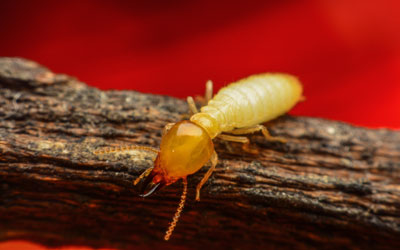 Rodents are one of the most common pest problems in Puerto Rico this time of year. However, if you’ve been seeing more than ever, you’re not alone! Since the start of the pandemic, rat and mouse infestations have become more of a problem for residents. This is due to the fact that rodents were suddenly depleted of their food source when restaurants and bars were put under new limitations. In addition to becoming more abundant, they have become more aggressive as they compete for food sources. A rodent problem is always a property owner’s worst nightmare—not only do they spread germs and bacteria, they also can be destructive. For this reason, Rentokil formerly Oliver Exterminating is focusing on prevention tips this Rodent Awareness Week. Keep reading to learn more.
Rodents are one of the most common pest problems in Puerto Rico this time of year. However, if you’ve been seeing more than ever, you’re not alone! Since the start of the pandemic, rat and mouse infestations have become more of a problem for residents. This is due to the fact that rodents were suddenly depleted of their food source when restaurants and bars were put under new limitations. In addition to becoming more abundant, they have become more aggressive as they compete for food sources. A rodent problem is always a property owner’s worst nightmare—not only do they spread germs and bacteria, they also can be destructive. For this reason, Rentokil formerly Oliver Exterminating is focusing on prevention tips this Rodent Awareness Week. Keep reading to learn more.
Rodents During the Pandemic in Puerto Rico
We all know rats and mice can transmit disease, but what about COVID-19? While rats and mice have been linked to certain coronaviruses, there is no current evidence or research to show that rodents are transmitting the current strain (SARS-CoV-2) to humans. Here are the facts:
- Due to the restaurant shutdowns and lockdowns, there have been a number of reported cases of rats and mice becoming more bold and rampant in the absence of food sources.
- The surge in rodent activity leads to a bigger risk of infestations and rodent-spread issues.
- While they won’t transmit COVID-19 to you or your family, rodents still can spread other diseases including hantavirus, salmonellosis, and more.
- Once inside your home, rodents can cause damage with their chewing and nesting habits.
Tips to Prevent Rats & Mice
To keep rodents and the dangers they bring out of your home, it’s important to implement rodent exclusion practices. These include:
- Storing food properly. Securely store food in tight-fitting containers with lids.
- Sealing holes around pipes. Use caulk or wire wool to cover up gaps and openings near pipes and other openings.
- Covering vents. Install mesh screens on your vents. Also consider installing screens on doors and windows.
- Using tight lids on trash cans. Rodents love to rummage in the garbage! If possible, keep your trash cans sealed and stored.
- Protecting eaves. Fix any damaged roofing and use wire mesh to seal gaps in your eaves.
How to Keep Rodents Out During COVID-19
With everything else going on this year, the last thing you have time for is a rodent problem. At Rentokil, we know how distressing rodent problems are, which is why we are committed to keeping you and your family safe all year long. Contact our rodent exterminators today to find out more!
 Here in Puerto Rico, we are accustomed to dealing with certain pests all year long. Termites are one of the most destructive pests and, unfortunately, they are active all year long. Many make the mistake of thinking that these pests are only active in the spring and summer, but this is because they’re often seen swarming. A termite colony can infest and continue to chew its way through a structure in the fall, winter, spring, and summer. Due to this fact, it’s crucial to stay vigilant about termite prevention all year long. The team at Rentokil, formerly Oliver Exterminating is here to help.
Here in Puerto Rico, we are accustomed to dealing with certain pests all year long. Termites are one of the most destructive pests and, unfortunately, they are active all year long. Many make the mistake of thinking that these pests are only active in the spring and summer, but this is because they’re often seen swarming. A termite colony can infest and continue to chew its way through a structure in the fall, winter, spring, and summer. Due to this fact, it’s crucial to stay vigilant about termite prevention all year long. The team at Rentokil, formerly Oliver Exterminating is here to help.